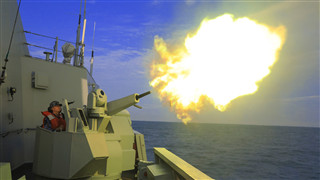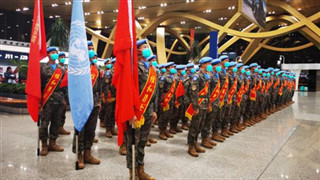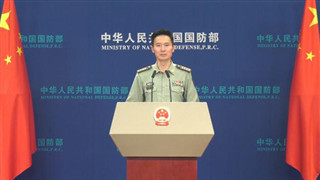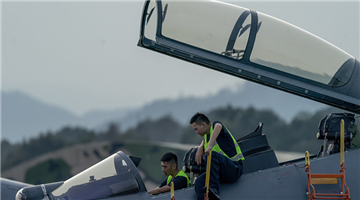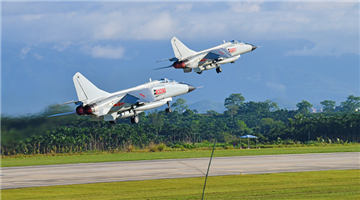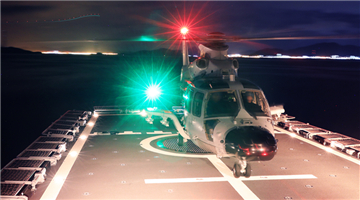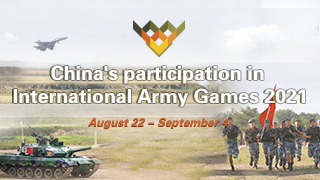By Zhang Aolin
On August 26, local time, the US, Japan, India and Australia kicked off the Malabar 2021, a large-scale joint maritime exercise, in the Philippine Sea. The US side announced that the exercise will be carried out in two stages, and the first stage takes place in the Philippine Sea.
It can be seen that the Philippine Sea is part of the Western Pacific, which is adjacent to the East China Sea, South China Sea and Taiwan island.
Li Haidong, a professor at the China Foreign Affairs University, said that the military exercise is the latest strategic move made by the US to compete with China. As part of its so-called “Indo-Pacific Strategy”, the exercise was intended to rope its allies and partners for a series of try-out operations. The “Indo-Pacific Strategy”, first initiated by former US President Donald Trump, was ostensibly aimed to keep the Indian Ocean and the Pacific Ocean “free and open”, but was essentially designed to lure regional countries to give a wide berth to China and maintain America’s leading position in the West Pacific and the world in general.
While Washington is bent on pulling all its troops out of Afghanistan against widespread criticism and opposition, it is at the same time going at full tilt to implement the “Indo-Pacific Strategy”. Admiral John Aquilino, Commander of US Indo-Pacific Command, visited India, where the two sides held talks about the regional security situation in relation to China. US Vice President Kamala Harris visited Singapore, where she gushed over “freedom of navigation” in the South China Sea, and also went to Vietnam at a moment when America’s withdrawal from Afghanistan was ridiculed as a re-appearance of the “Saigon moment”. She was trying to convince the Asian countries that America had not changed and alliance with it was the only way to guarantee security.
Yet Southeast Asian countries, including Singapore, Malaysia and Vietnam, did not want to take side. According to Li, countries like Singapore had their own strategic considerations; they won’t blindly dance to America’s tune, and Washington cannot change their view on regional and international order in the short term. As Singapore’s Lianhe Zaobao and France’s AFP reported, the US has to accept the fact that Asian-Pacific countries are having closer trade ties with China. Besides, Washington’s latest debacle in Afghanistan has lent a serious blow to its credibility, not only incurring complaints from its European allies but also filling ASEAN countries with worries and doubts over Harris’ commitment.
Yet as a country in East Asia, Japan has made no secret of its intention of taking advantage of foreign powers. It attached great importance to the exercise by dispatching four warships (in comparison with India’s two and Australia’s one), including the JS Kaga (DDH-184), a helicopter carrier with a planned future conversion into an aircraft carrier.
“Japan has completely broken away from the “exclusively defense-oriented” strategy in recent years. In the past, it could only leverage on the US to go global; now it is taking advantage of the four-nation joint military exercise,” said Lyu Yaodong, a researcher at the Institute of Japanese Studies of Chinese Academy of Social Sciences, adding that Japan is “moving from playing second fiddle to taking the lead” in the joint exercise.
Apart from the joint exercise, Washington, Tokyo, New Delhi and Canberra are also pushing relevant matters through the QUAD organization, which, as explained by Li Haidong, plays a very limited role and cannot count as an alliance at the moment, though it may evolve into an alliance-like organization similar to NATO.
According to Li, China and the US enjoy vast room for cooperation, but the latter is exerting deterrence through QUAD. “Obviously, such an idea and practice are out of place in the current age” and mirror the “psychological imbalance” of those countries. These countries are attempting to use the QUAD as a platform to establish their domination in the West Pacific and cause division and turmoil in the region, but such actions that are blatantly against the laws governing historical development are doomed to fail.
“China’s position is consistent – military exchanges and cooperation between countries should help maintain regional peace and stability, deepen mutual understanding and trust, rather than target any third party or harm its interests,” said Senior Colonel Tan Kefei, spokesperson of the Chinese Ministry of National Defense, on August 26.
Editor's note: This article is originally published on chinanews.com, and is translated from Chinese into English and edited by the China Military Online. The information, ideas or opinions appearing in this article do not necessarily reflect the views of eng.chinamil.com.cn.
